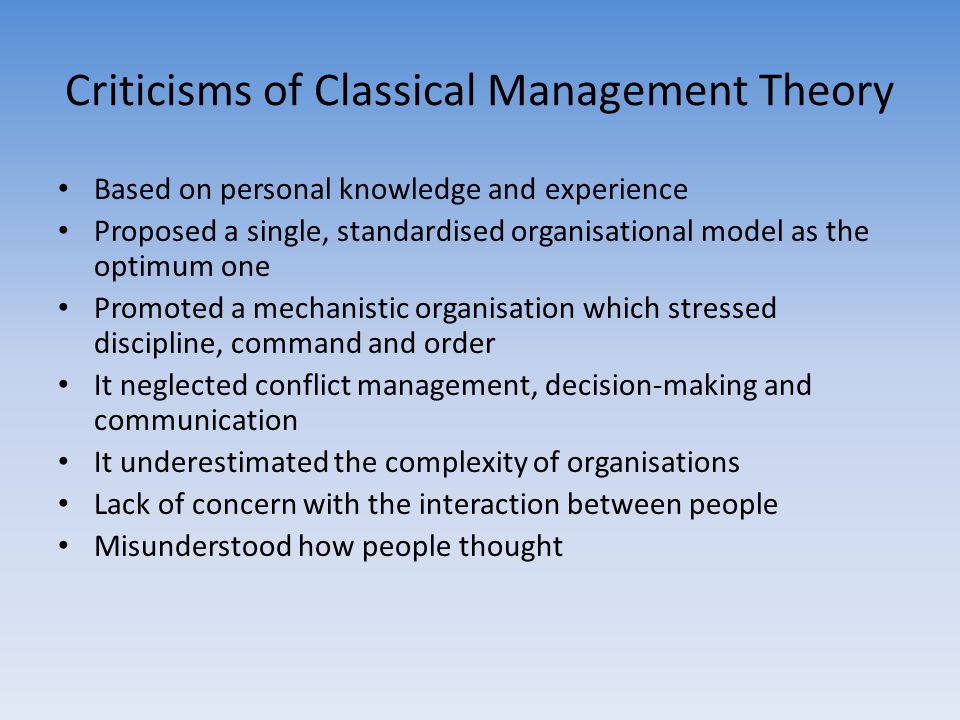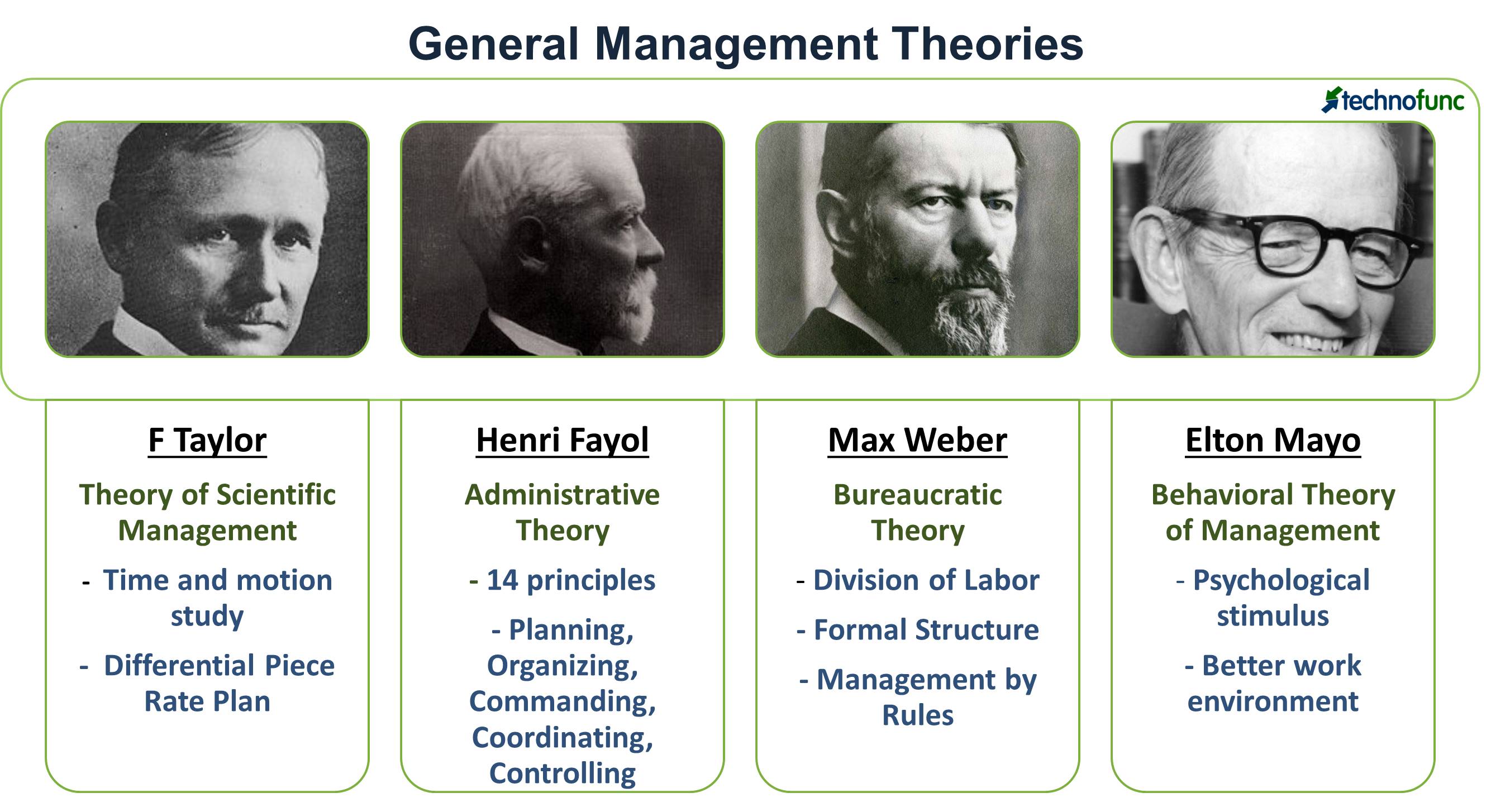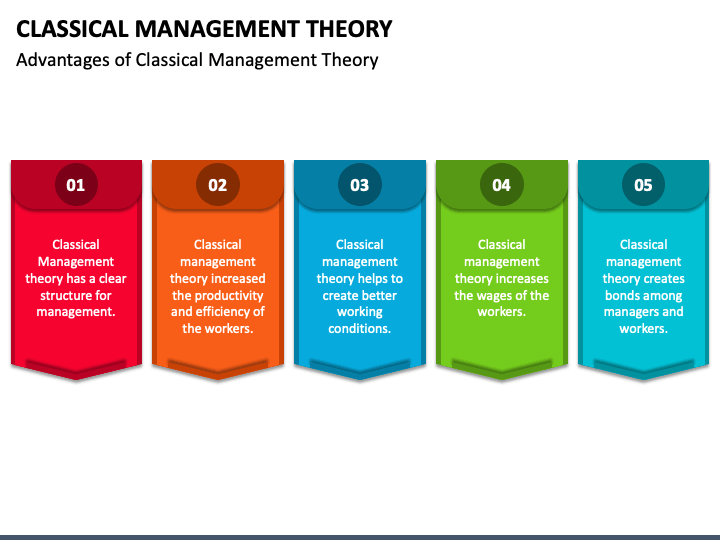Classical management theory is a framework of management thought that emerged in the late 19th and early 20th centuries. It is based on the idea that there is a single "best" way to manage organizations, and that this approach can be determined through scientific analysis.
The classical management theory is often associated with the work of Frederick Winslow Taylor, who is credited with developing the concept of "scientific management." Taylor believed that the key to improving efficiency and productivity in organizations was to carefully analyze and break down each task into its component parts, and then to develop a standard way of performing each task. He believed that this would allow managers to identify the most efficient way of doing things, and to eliminate waste and inefficiency.
Another key figure in the development of classical management theory was Henri Fayol. Fayol developed a set of principles for management, which he believed were applicable to all organizations. These principles included the division of labor, the chain of command, unity of direction, unity of command, subordination of individual interests to the general interest, and the scalar chain.
Classical management theory is based on a number of assumptions, including the idea that people are rational and motivated by self-interest, and that organizations are rational entities that can be managed in a rational way. It also assumes that there is a clear hierarchy of authority within organizations, and that decisions should be made by those at the top of the hierarchy.
One of the main criticisms of classical management theory is that it is overly prescriptive and inflexible. It assumes that there is a single "best" way to manage an organization, and that this approach can be determined through scientific analysis. However, critics argue that this approach does not take into account the complexity and unpredictability of organizations and the people who work within them.
Despite its criticisms, classical management theory has had a significant influence on the way that organizations are managed and has shaped many of the management practices that are still in use today. It continues to be an important and influential approach to management, and is often studied in business and management courses.








